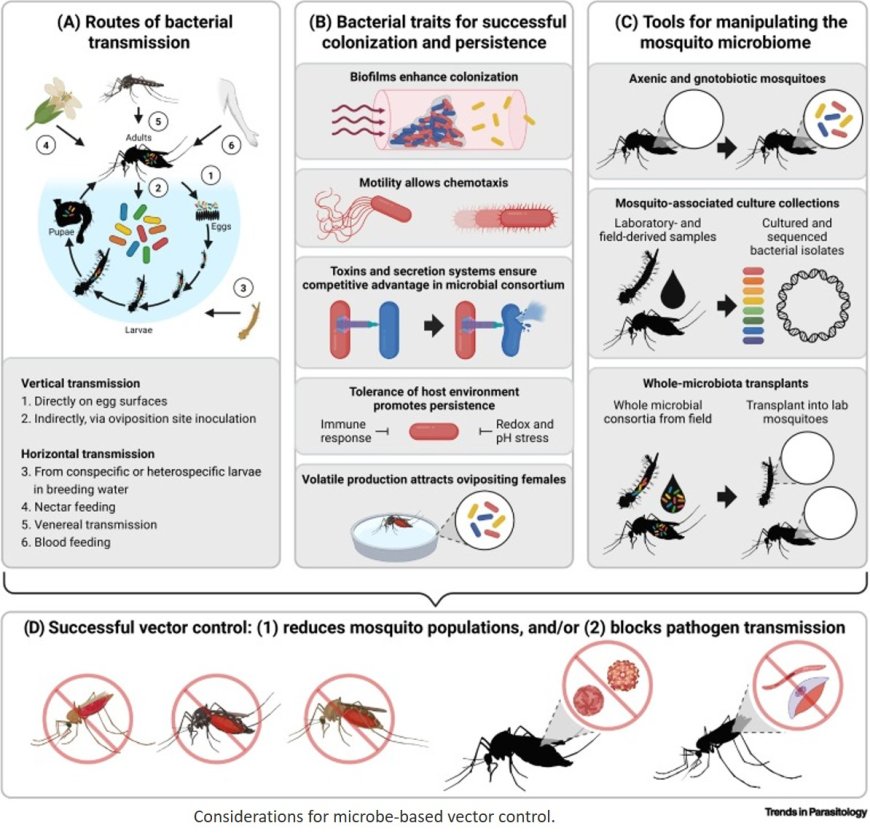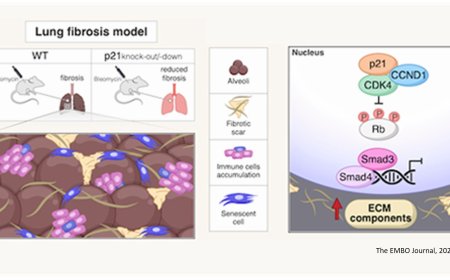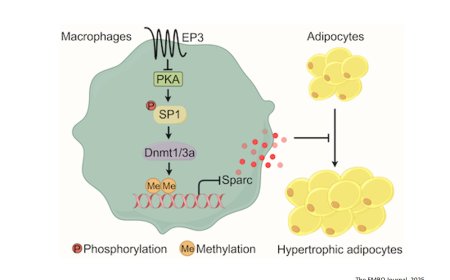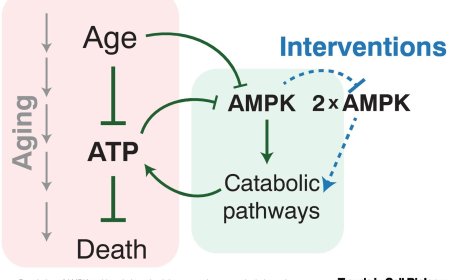Controlling mosquito-borne disease using microbial ecology

Bacteria are promising agents for preventing mosquito-borne pathogen infections worldwide.
Understanding host–microbe interactions and microbial ecology is key to generating a cost-effective and self-perpetuating vector control agent.
We must consider routes of transmission within mosquito populations (vertical, horizontal, mixed mode), as well as genetic determinants of bacterial colonization success when choosing bacterial candidates and methods of field deployment.
Additionally, we need to evaluate environmental factors and potential impacts on non-target species to ensure sustainable and effective vector control.
https://www.cell.com/trends/parasitology/fulltext/S1471-4922(25)00179-5













